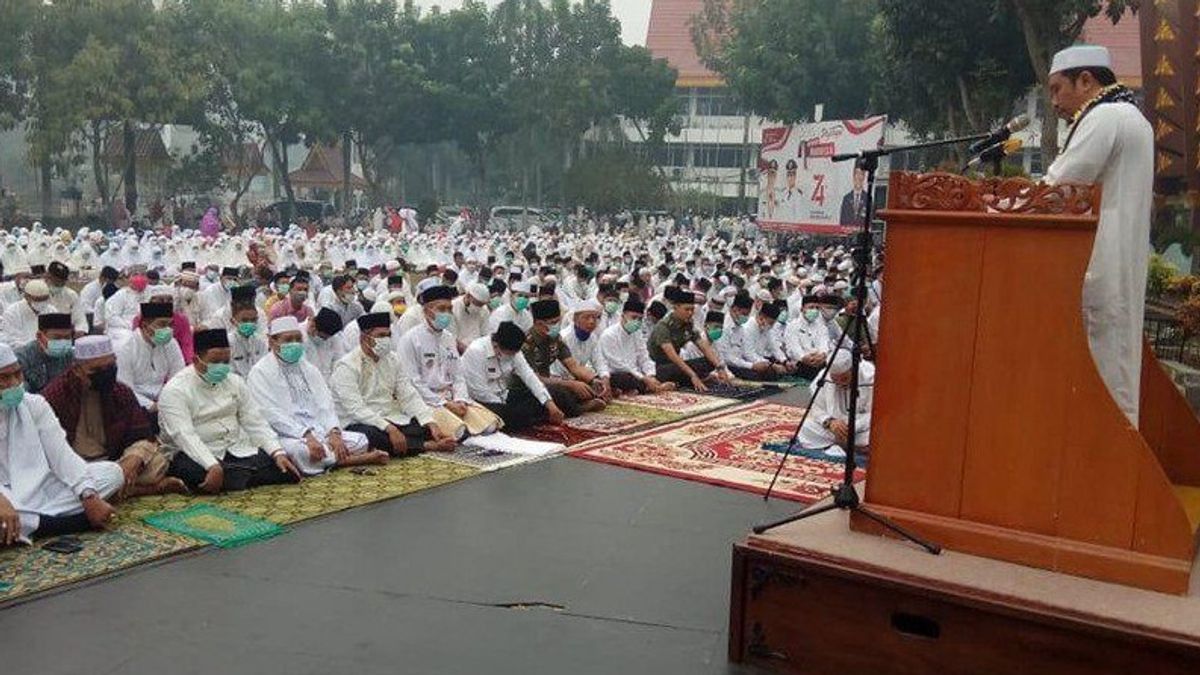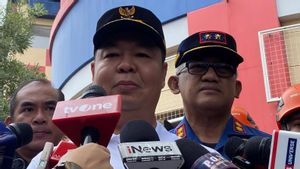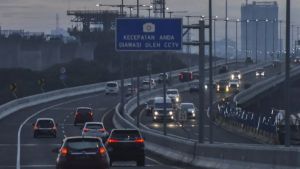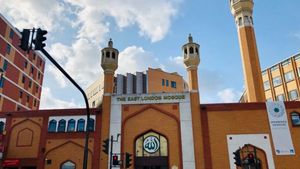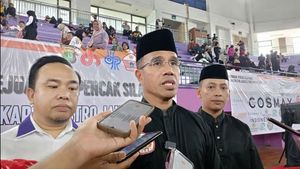YOGYAKARTA Not long ago, Pekalongan and Sukabumi City Governments (Pemkot) received a lot of criticism for not allowing Muhammadiyah residents to perform Eid prayers in the field.
One of the criticisms came from the Chairman of the PAN faction of the DPR RI, Saleh Partaonan Daulay. He said that the absence of a permit for residents who would perform Eid prayers in the field for Muhammadiyah residents was very unwise.
Moreover, the government has not announced an official decision regarding the implementation of Eid al-Fitr for Nahdlatul Ulama (NU) residents. It could be, he said, the results of the government's decision would be the same as Muhammadiyah.
"Prohibiting the implementation of Eid prayers (on the field, ed) on April 21 is very unwise. It could be that they (NU and Muhammadiyah) can both pray on the same day," said Saleh, Monday, April 17, according to VOI.
After receiving a lot of criticism, the Pekalongan City Government and Sukabumi allowed Muhammadiyah residents to hold Eid prayers in the field.
So, what is the history of Eid Prayers in the Field? Who first put forward this idea? Check out the full information below.
The implementation of ied prayers in the field has been carried out for a long time and has a long history to accompany it.
According to historical records, the first to popularize ied prayers in the field was Muhammadiyah, one of the largest religious organizations in Indonesia.
Initially, this idea was unusual and was widely rejected when applied. However, over time, the practice of praying in the field is acceptable and is considered commonplace.
Adapted from Muhammadiyah's official website, Haedar Nashir in the Muhammadiyah Update Movement (2010), said that Muhamadiyah first held Eid prayers in the 1926 PAADA field. At that time, Salat Id was held in the North Square of the Yogyakarta Palace.
Haedar explained that Kiai Ahmad Dahlan, who died 1923, had tried to understand Muslims to follow the Sunnah of the Prophet Saw with Salat Id in the open field.
In the 1920s, Indonesian Muslims, the majority of whom are fiqh Syafi'i, did perform Eid prayers at the mosque or in other words led by the imam in the mosque because they considered the existence of mosques to be more important.
Meanwhile, according to St. Nurhaya, et al in a book entitled Muhammadiyah in the Historical, Organizational and Value System Specifics (2019), Muhammadiyah performed Eid prayers on lapangan after receiving criticism from a guest from India. This criticism was made during the leadership of Kiai Ibrahim (1923-1933).
The guest from India criticized Muhammadiyah for carrying out Eid prayers in the Yogyakarta Palace Mosque.
According to these guests, Muhammadiyah, who has positioned itself as the Tajdid movement (harassment) should be able to carry out Eid prayers and Eid prayers in the field, as exemplified by the Prophetullah Saw.
Muhammadiyah uses the Yogyakarta Palace Mosque as the location for Eid prayers because it wants to honor Sultan Hamengkubuwono VII for allowing Kiai Ahmad Dahlan, who was then the leader of Muhammadiyah, to hold a celebration of the Islamic holiday with a different date from the Palace.
The reason is, Muhammadiyah uses a Hisab system and Hijriyah Calendar, in contrast to the Palace which uses traditional Javanese or Abage dating so that there is a difference in the date of Islamic holidays.
Eid Prayers In The Field Popularized By Muhammadiyah
Muhammadiyah began to popularize Eid prayers in the field after the 1926 Congress.
The existence of this congress is also the starting point for Muhammadiyah scholars to form the Tarjih Council to discuss worship.
Based on the decision of the 1926 Congress, various consultants and branches of Muhammadiyah throughout Indonesia began to regularly hold Eid prayers in the fields in the following years.
That's information about the History of Eid Prayers in the field. To get other interesting news, keep reading VOI.ID.
The English, Chinese, Japanese, Arabic, and French versions are automatically generated by the AI. So there may still be inaccuracies in translating, please always see Indonesian as our main language. (system supported by DigitalSiber.id)
